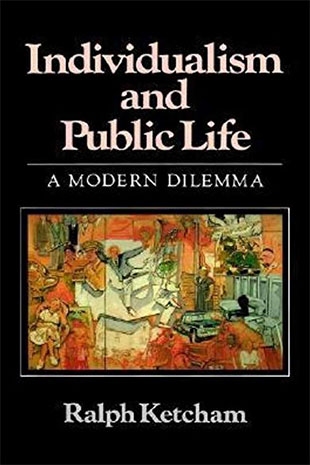"With these surveys of wester individualism and of Confucian cultures in mind, then, what can we make of the paradoxes evident in American public life since 1945? Is it possible that the very depth and appeal of the individualist tradition, yielding as it has and still does rich rewards I openness, freedom, prosperity, creativity, and privacy, in a way also hinders us from coping effectively with the public realm? More profoundly, might that tradition itself, partly because it has had such a full and vigorous development through 2,000 or 3,000 years of western history, be in its late-twentieth-century formulation disproportionate and flawed? And does its very pervasiveness and attractiveness also serve to blind us both to its weaknesses and to alternate perspectives?
"Perhaps two wisdoms, one ancient and the other modern, capture the central dilemma revealed thus far: the Biblical injunction, 'he that loseth his life for my sake shall find it,' and Erich Fromm's apparently incongruous title, Escape from Freedom. Each suggests a reversal of 'first glance' truth. We do not find meaning or fulfillment in our lives by seeking such deliberately, for its own sake, or more to the point, self-centeredly, but rather by getting outside ourselves and relating ourselves, committing ourselves, to larger, transcending designs or purposes. Oppositely, mere freedom from bonds, being on our own, at liberty to do as we please (by ourselves), far from being welcome and satisfying as individualist ideology generally assumes, is often alienating and frightening and thus provokes us to want to 'escape' the very freedom we thought was our heart's desire."
